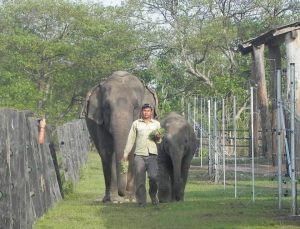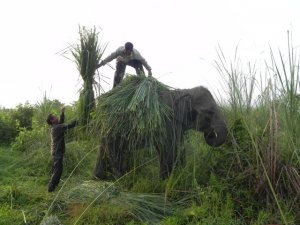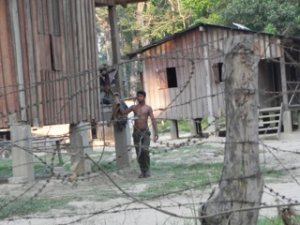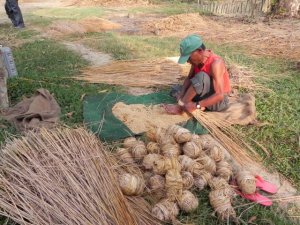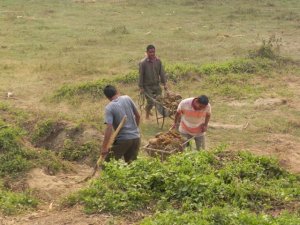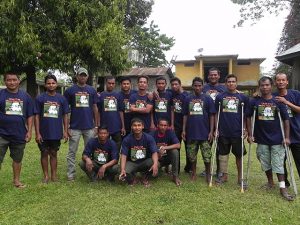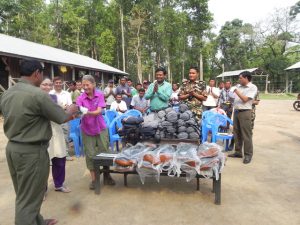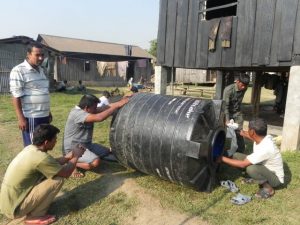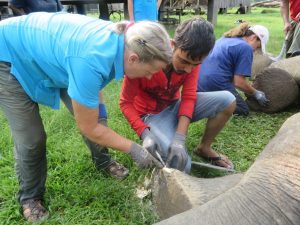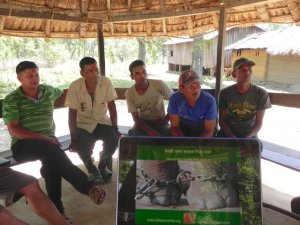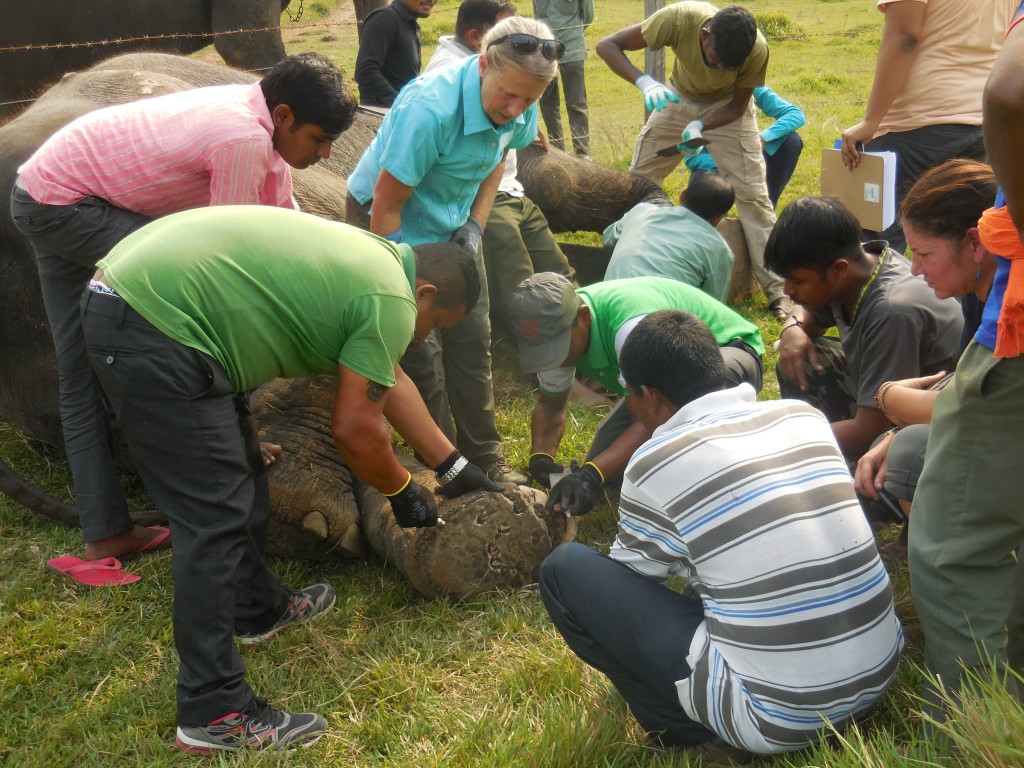
Help support EAI’s ongoing program to give mahouts (elephant handlers) in Nepal the tools, equipment, supplies and skills they need to do their job.
What
An ongoing program to give mahouts (elephant handlers) in Nepal the tools, equipment, supplies and skills they need to do their job.
This program covers three areas: gear and equipment for government mahouts on anti-poaching patrols; foot trimming tools for both government and private sector mahouts; and sponsorships for EAI’s foot trimming workshops.
Anti-Poaching Patrols
In Chitwan National Park, the government of Nepal employs rangers to patrol and keep the park’s native wildlife safe from poachers. Sometimes army soldiers or researchers join them.
Because the terrain is impassable for vehicles during monsoon, the patrols use elephants in place of jeeps. Each elephant has a mahout, who is with his/her elephant at all times. Based at 15 hattisars (facilities) throughout the park, they work in harsh conditions in the wilderness, seven days a week rain or shine.
Jungle Dangers
The mahouts face many dangers while they are on patrol and collecting fresh-cut jungle grass to feed their elephants, from poisonous snakes, hungry tigers, aggressive rhinos and renegade wild bull elephants to rifle-wielding poachers.
Unfortunately, the government has no budget to give mahouts the supplies and equipment they need, such as raincoats, rubber boots, wheelbarrows and grass cutting tools. Even their very basic housing lacks running water, electricity, showers, a modern kitchen and functioning toilets.
Mahout Duties
- Caring for dangerous captive-held bull elephants in musth (heightened testosterone level). If mahouts don’t have a hose, wheelbarrow and feed bucket, they risk being attacked by the hormone-fueled elephant.
- Hand-making 150 pounds of kuchi for their elephant daily. (Kuchi is a traditional food ball made by folding elephant grass into the shape of a bowl and filling it with rice, salt, molasses and any necessary dietary supplements.)
- Assisting the veterinarians with health checks and care if their elephant is unwell.
- Clearing the elephants’ chain-free corrals or stable of manure.
- Transporting food and feeding the elephants.
Results
Thus far, supporters’ donations have enabled EAI to:
- Supply 15 hattisars (elephant stables) with wheelbarrows, tire pump, tire repair kit, shovels, flashlights, tool kit.
- Provide 2 gas powered grass cutting machines.
- Outfit 180 mahouts with umbrellas, rain boots, winter jackets, t-shirts and work gloves.
- Retrofit a rickshaw for manure disposal.
- Add concrete flooring in mahout meeting areas to provide a clean environment and protect equipment.
- Plumb water to elephant water troughs.
- Install hot water showers in one hattisar, serving 15 mahouts.
- Renovate second story rice house, where the elephants’ food is stored, for mahouts’ safety.
- Enclose hattisar in a remote, high risk man-eating tiger region with fencing to protect mahouts.
- Build mahout housing close to chain-free corral in remote high-risk wild rhino area.
- Install electric water pumps.
- Install water storage tanks and plumbing.
Foot Trimming Tools
Foot condition is key to an elephants’ overall health. In addition to training mahouts in the fundamentals of elephant foot health, EAI provides each mahout a complete set of trimming tools. The set includes:
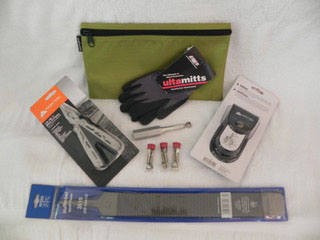
- triple antibiotic ointment to soothe elephants’ irritated corneas caused by sand and dust particles caught in their eyes
- two sterile exacto blades used for delicate trimming around foot abscesses and nail splits and handle
- a canvas zippered bag with EAI’s logo to hold their tools
- two pairs of gloves to protect their hands while trimming feet and cutting elephant grass
- a large hoof trimming rasp to remove excess pad and nail
Workshop Sponsorships
Mahouts are hard-working but are poorly educated and inadequately paid. Although they are skilled at controlling their elephants, they may lack knowledge of even basic biology and psychology, which limits the quality of care they can give their elephants.
They are eager to learn and improve their skills but they have few opportunities to do so.
EAI goes to Nepal twice a year to trim elephants’ feet and train government and private sector mahouts in the fundamentals of foot care.
EAI workshops teach them basic elephant anatomy, proper foot trimming skills, foot disease prevention, effective stable design and the benefits of creating a healthy mahout-elephant relationship.
Mahouts come away from the workshops with the knowledge and skills to spot problems early, prevent infection and maintain their elephants’ foot health. And with a better understanding of the important role they play in their elephant’s overall physical and psychological health, they interact with their elephants with greater compassion and kindness.
Each mahout we train becomes part of a ripple effect when they return home and share what they’ve learned with their fellow mahouts.
What It Includes
For $100 you can sponsor a mahout’s attendance at an EAI foot care workshop. Your sponsorship covers transportation to and from the workshop, lodging and food, a complete set of foot trimming tools, t-shirt and small stipend.
For $10, you can provide a daily stipend for 1 mahout attending the workshop.
